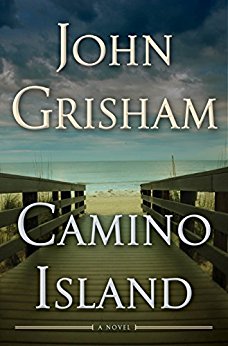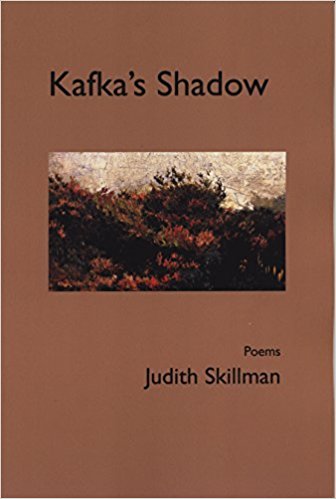 I have always been concerned about civil rights and justice. Having served in the military, I was sensitized to problems of homeless vets. Currently, I assist at a writers’ group in a center for the homeless in Maryland. Experiences there birthed both this short play and essay. I was excited when our editor, Roxana Nastase, said she’d consider a script for the theater. Earlier, I was a professor of ‘behavioral economics,’ a mathematical and experimental sort of social science and philosophy, mainly at the University of Maryland. I retired to invent worlds and put them on paper. I mainly write stories and poems. I have submitted a few and published some. Much is on my website:http://gvptsites.umd.edu/oppenheimer/id43.htm. Beautiful What would you say is beautiful about a man, call him Tommy: a man once so wildly high on crack that he neither could bury his own father nor give his mother and family support in their time of grief? Rather, he hid in the bushes and waited till all had left, and the night crept on him. Going to the grave site, he finally wept. For his father? No. For himself. Decades passed. What would you say is beautiful about the arc Tommy takes on January Fourteenth? He passes an old woman in a wheelchair on his early morning walk to work. She is waiting on the slightly sheltering patio of a soup kitchen he knows well. It would open soon. He asks if she is cold. She answers, “Yes.” So he enters and tells the people there, who are setting up for breakfast. They respond with a “This and that.” and he leaves, walking through the large county parking lot that abutted the patio. At the far end of the lot, with one last thought about the cold woman, he turns and spots her now out in the middle of the unsheltered parking lot. Tommy turns around, and returns to the soup kitchen. He asks what happened. “We aren’t open yet,” says the director. “She isn’t allowed to be on our property until we open. It’s trespassing.” Tommy sees a pile of blankets. He takes two and brings them to the old lady, and goes on to work. Breakfast time turns to lunch time at the small restaurant where Tommy works in the kitchen. The middle afternoon is slow, and although it is not very cold, he decides to make sure the old lady isn’t outside again. Walking to the parking lot he sees her, without blankets. He wheels her to the sheltering patio and goes inside. They tell him he’s trespassing. He asks about the blankets. They say they aren’t hers. He says she needs to be inside. They say, “That is impossible.” Tommy is a big man. And when he explodes the frightened staff doesn’t know what to do. He again grabs two blankets. He spreads them on the old woman. They call the police. He is served a citation. He has to go to court. The complainants don’t show up. The charges are dropped. These days, Tommy comes to the soup kitchen’s writers’ group and talks about the importance of helping others as a way of building a foundation for one’s soul.
0 Comments
Author is a retired attorney having practiced for 35 years in Illinois who now lives in Texas and started writing stories about a year and a half ago. Book Review: Camino Island
John Grisham’s claim to fame as we all know are his numerous books about lawyers. This new book of his, Camino Island, however is not about lawyers. It’s a book about books. It centers on some hand written manuscripts of a famous deceased American author stolen from a prestigious university. An insurance company is on the hook for millions if they are not recovered and this book is the saga of their recovery. And along the way Grisham tells us many interesting facts about the book publishing industry, book sellers, struggling novelists, rare book collectors, rare book dealers, and miscellaneous interesting tidbits like the value of a Cormac McCarthy or James Lee Burke autographed first edition or that seventy percent of new book buyers are women. From that last fact alone I deduced that’s why his protagonist here is a woman. It took me a while to figure that out though since the first few chapters deal exclusively with the details of the heist and the male criminal characters thereof. I actually started to wonder which one of these bad guys is suppose to be our hero. Not until you’re into the book a ways, and here it was not quick enough for me, does our heroine come into play. I for one don’t like to be confused like that. I want to be introduced to my my hero or heroine right off the bat. So this is my first criticism of the book and strike one for Grisham. Our heroine, a wannabe successful novelist and a just now unemployed college professor, is sought out by the insurance company to help them in their recovery efforts. Her mission, should she decide to accept it, is to go to Camino Island and find out what she can from a well known very successful bookseller there who may have the manuscripts. He’s a suspect because he has been know to deal in rare stolen books on occasion. She’s perfect for the job her prospective employer tells our reluctant heroine because she’s a published novelist with family connections to Camino Island and thus will nonchalantly fit right in with the book writing and book selling community there. Plus she can work on her contracted novel, three years over due, full time. She dithers but when she's told the ungodly sum she will be paid for her services, well of course we all knew that was coming, she accepts the job as an amateur but well paid sleuth. The book dealer and alleged seller of stolen rare books and possible possessor of the stolen manuscripts is kind of an Elmore Leonard type of character in that he is a bad guy that can sometimes be likeable. The well known book dealer operates out of his well known bookstore and is also a well known, and proud of it, womanizer. He has an ‘open’ marriage with his ‘wife.’ Whether all this is relevant to the story or put in there for titillation purposes I’m not certain. And there’s way too much TMI on the ‘marriage.’ Anyway the sex pitch is one Grisham should not have taken a swing at. Strike two. Our heroine eventually falls for his charms and sleeps with the enemy. No bodice ripping or steamy sex scene here, but it happens nonetheless, and I kept hoping that it wouldn’t. Our heroine should be a good girl and shouldn’t sexually fraternize with the bad guy. That’s strike three. Oh but there’s more. All the while the insurance company is keeping tabs on things at a much better, faster, pace and with more techno elaborate efficiency than any Mission Impossible team could do. So much so that what they spend in time, manpower, thoroughness and expenses seems unbelievable. Strike Four. Well eventually all’s well that ends well. But this book has an Elmore Leonard type of ending. Elmore Leonard is one of my favorites that’s why I keep invoking him, and what works for him doesn’t necessarily work for Grisham. Strike five. Normally when I read Grisham, and he’s one of my favorites too, I can’t put his book down and read it in a couple of days. Here however I found myself reading maybe ten pages a day, the next day fifty, the next day maybe none. Strike six. Two outs. Nevertheless I didn’t give up on him and start reading something else which is what I normally do with over half the books that I start reading. And now for something in the book’s favor. It is well written and a smooth read and I did learn a lot about the book publishing, book writing, and bookselling industry. To me this is a plus because I like to learn something new each day. I’m sure Mr. Grisham is well acquainted with all things in the book business and therefore is more than qualified to write about them. But in my humble pie opinion, he’s better off sticking to legal thrillers. And he must think so too. After all his new book coming out this fall is simply entitled: ‘New Legal Thriller.’ Even though this book was so so and he struck out twice, I’ll give him another turn at bat. After all the man does have a pretty good batting average. Carol Smallwood’s recent collections include In Hubble’s Shadow (Shanti Arts 2017); Prisims, Particles, and Refractions (Finishing Line Press, 2017). A multi-Pushcart nominee, she’s founded, supports humane societies. BOOK REVIEW - KAFKA'S SHADOW http://thenewbookreview.blogspot.com/2017/05/award-winning-poet-takes-on-kafka.html Compulsive Reader May 4, 2017 http://www.compulsivereader.com Kafka’s Shadow. Judith Skillman. Deerbrook Editions, Cumberland, Maine. 77 pages; $16.95; paperback. 2017. ISBN 978-0-9975051-4-6 https://www.amazon.com/Kafkas-Shadow-Judith-Skillman/dp/0997505141 A contemporary American woman poet takes on an awesome task when writing about a male fiction writer in another era (1883-1924) composing in German in what is now the Czech Republic. Judith Skillman, the recipient of an Academy of American Poets and included in Best Indie Verse of New England is to be commended for this unique collection. Franz Kafka had few works published during his life, yet his influence spreads beyond literature to philosophy—his characters meeting bizarre circumstances, alienation and absurdity. The title of the poetry collection comes from one of Kafka’s letters and is also the title of one of the poems. Poems such as “Dearest” and “Felice Ponders” employ the point of view of the woman who wants to be his wife, though Kafka never marries. Skillman uses details like bulgur wheat, her stiff collar, and a train ride from Prague to Berlin to portray the couple’s relationship and culture. “Tuberculosis,” which ends his life at 40, is written from Kafka’s point of view, with borscht soup waiting to cool, his father sleeping in a chair, and the image “fat pigeons sun themselves in winter light.” There are several poems examining the relationship of Kafka and his father through Biblical allusions, most notably the story of Abraham sacrificing his son Isaac. Kafka’s character and his world reveal themselves not unlike layers of an onion. We feel we know them better with each poem. Three pages of notes at the end of the collection include details such as the word “pater” means father, as well as background quotes from Kafka’s many letters. It takes a lot of craftsmanship to have readers get inside the personalities and the culture of the characters in poems based on scholarship and detailed research—a huge task; all of the poems stick to the topic of Kafka and explore aspects of his family and his times. The last of the 47 free verse poems, “Kafka’s Nocturne,” uses revealing lines in its penultimate stanza: “Rumination and obsession—/guests who sit on the bed he won’t occupy/ with a lover….” |
Categories
All
|


 RSS Feed
RSS Feed